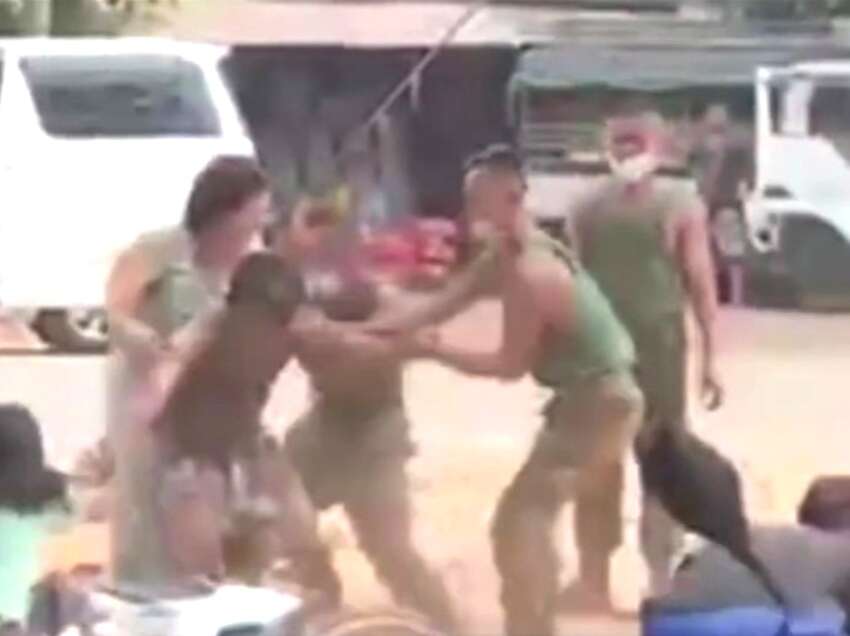
A disturbing incident occurred at a religious alms-giving ceremony in Gyutpin village, Yenangyaung Township, Magway Region, where military and police forces forcibly arrested young men for military service. The incident took place on August 30th when a team led by Police Station Commander Police Lieutenant Chanmyathtaung from Latmakun Police Station entered the monastery during the ceremony, bringing along a villager, and arrested four young men. The peaceful religious ceremony was disrupted as monastery students fled in panic during the raid.
Of the four young men arrested, three were later released after their families paid money, while one remains in custody. According to local residents, Police Lieutenant Chanmyathtaung is known for regularly conducting forced recruitment operations and extorting money from villages in the Yenangyaung Township area. Previously, on April 13th, he had also forcibly entered homes and arrested two young men, Ko Zay and Ko Zaw Htet Aung, from Thonezetchaung village without any criminal charges, specifically targeting them for military service.
The police lieutenant has also been implicated in setting up checkpoints at the Yenangyaung Pinchaung bridge, where he and his team extort money from passing civilians and carry out arbitrary arrests and beatings. Additionally, military units stationed in Yenangyaung Township conduct operations in villages to forcibly recruit young people as porters. A concerning development has emerged in the township where military, police, and local administrative bodies collaborate in a system of trading new military recruits, essentially creating a market for forced military service in the urban areas.
This pattern of forced recruitment and extortion has created significant fear and concern among local residents. The military and police forces continue to target religious ceremonies and private homes to capture young men for military service, showing complete disregard for civilian rights and religious activities. The situation has particularly impacted the daily lives of young people in the area, who must remain vigilant to avoid being forcibly recruited into military service. The collaboration between various authorities in these forced recruitment operations has made it increasingly difficult for local communities to protect their young people from such practices.



